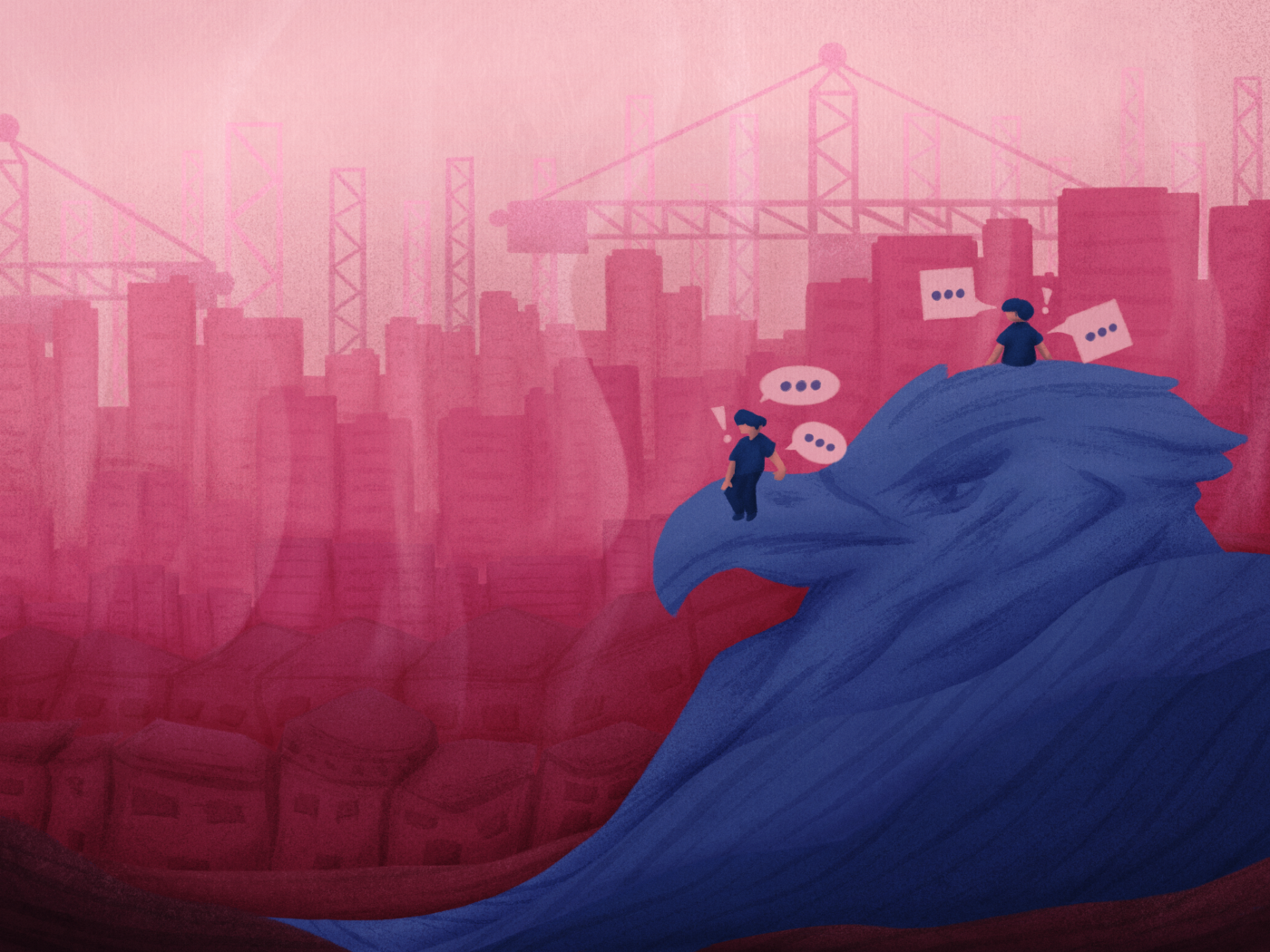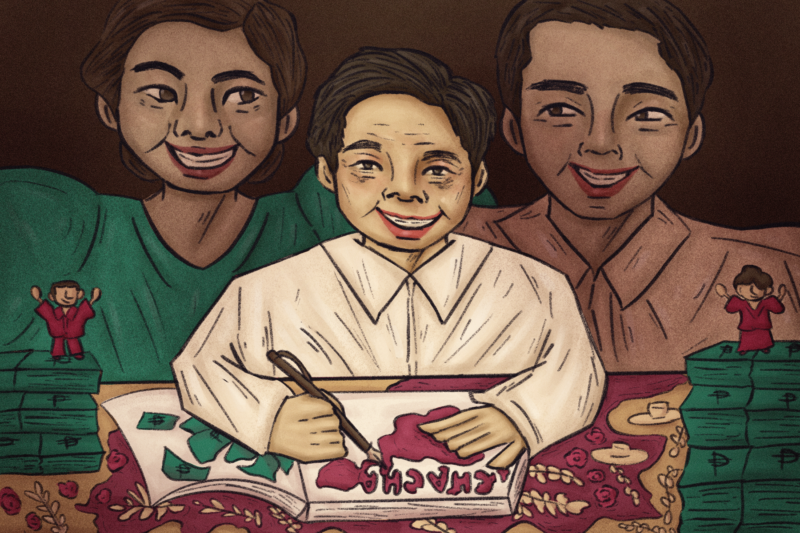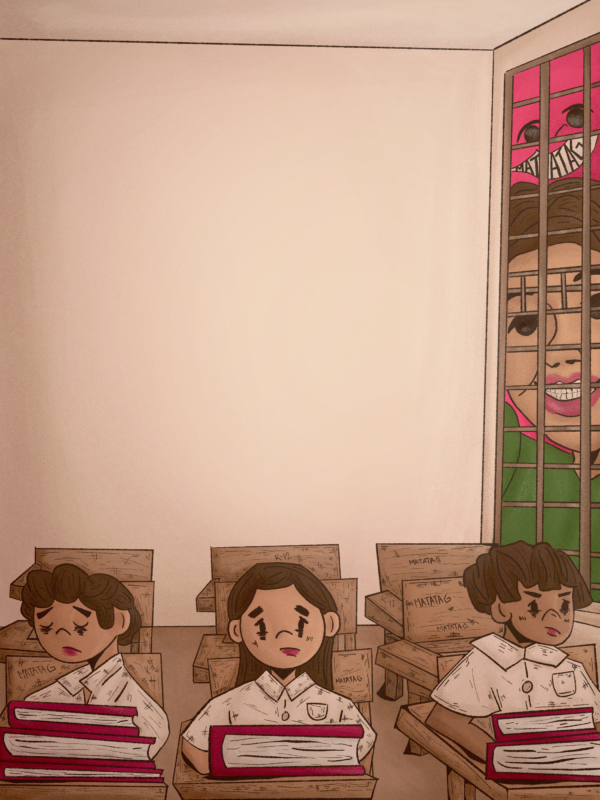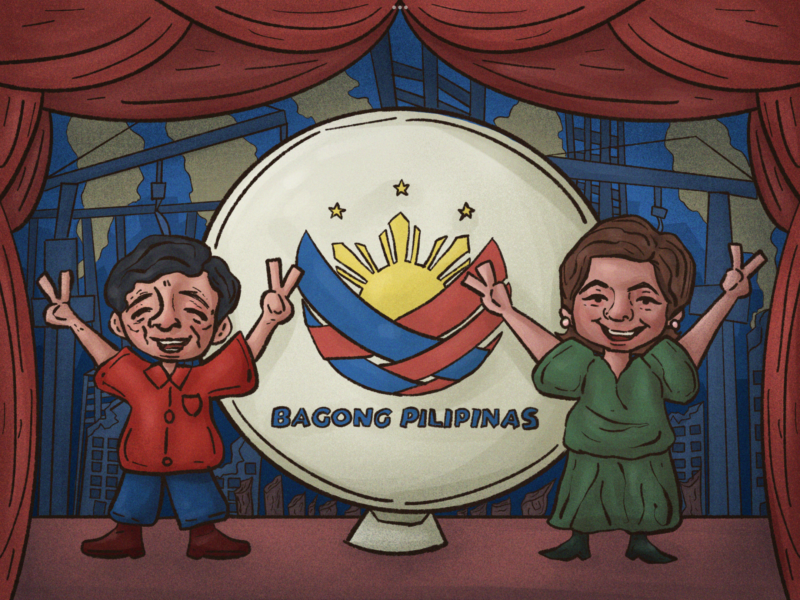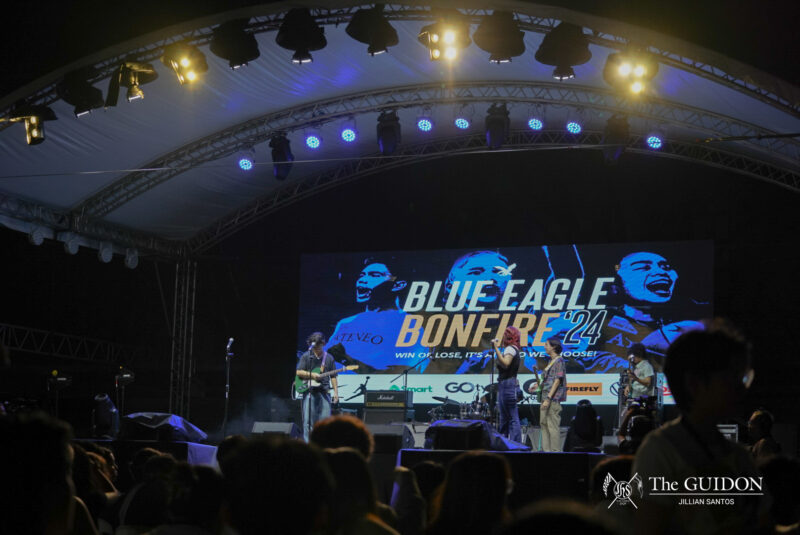SINCE ITS inception, the Ateneo has grounded itself in a mission to be of service to the Filipino people. The academic institution has housed a long lineage of historical figures and public servants that exhibit the University’s values of Ignatian spirituality, magis, and being “persons for and with others.”
Grounding the University’s actions on its values and acknowledging figurehead contributions meant that the Ateneo has engaged and continues to engage in social issues. In this light, the Ateneo strives to stay updated and aware of the realities faced by Filipinos.
Still, while the proverbial Hill attempts to reach outward and root itself in the realities of the marginalized, the dominant notion of privilege surrounding its image and way of service remains. With frequent questions on the Ateneo’s ability to meaningfully act on its privilege, subsequent doubt may arise regarding the institution’s role in actualizing authentic and sustained societal impacts.
Bleeding blue
From interpretations of students coming down the proverbial Hill to the learned sensitivity against “tone-deaf” statements, the Ateneo is cognizant of its privileged and elite position.
Ideally, this consciousness of privilege should then yield actions that deconstruct the elitist notion the general public associates with the University. The Ateneo’s emphasis on Ignatian praxis similarly suggests the existence of more active and concerted efforts to actualize its vision of being a “rooted” and “engaged” leader in social transformation. Particularly, the Ateneo’s primary call entails the embodiment of being persons for and with others.
For instance, the Ateneo actualizes aforementioned efforts through multiple endeavors such as Gawad Kalinga-Ateneo, which engages with underprivileged families, and the Ateneo’s academic assistance program, Pathways to Higher Education, coupled with generous scholarships.
Even so, these efforts struggle to fully keep the University’s sustained image of privilege in check. Today, Philippine society still views the Ateneo as an exclusive school that has catered to generations of elite power, with most people associating the institution with privilege. As the University lacks sustained concrete actions to counter this image, the academic institution risks further distancing itself from the communities it seeks to serve and cater to. If it will continue to softly accept its positionality on the Hill, Ateneo inherently situates itself higher than the “others”—a contradiction to its values.
While these projected views may be unintentional, they nonetheless exist and affect how the institution is seen and even acts. The Ateneo is challenged to go beyond service that is perceived as messianic or superficial, especially in students’ experiences during their National Service Training Program (NSTP). Similarly espousing hierarchical paths of decision-making, leadership in the University can be associated with a lack of community engagements.
Up on the Hill
Principally, political actions within the campus are seen to be only vested in the Ateneo administration’s decisions. Such a culture widens gaps between the administration and its constituents, especially in terms of priorities. Specifically, while the institution enables its constituents to express their concerns through town hall sessions and forums, unchanged power dynamics only keep enabling the admin to dominate conversations.
Arguably, the Ateneo community faces limited participatory avenues, reducing their potential to impact policy- and decision-making, especially in situations that could affect them and the institution’s future. In doing so, the Ateneo serves its constituents in ways that may not necessarily be amenable to its community, focusing too much on the end and losing track of a participatory means.
For instance, the Ateneo’s recent North Carpark renovation had constituents clamoring for better transparency, communication, and further agency regarding the project. Though these plans were initially postponed and revised through a forum, the admin eventually decided to push through with the project, offering as succor its acknowledgment of the community feedback and the establishment of the Campus Mobility Forum.
Issues such as this are not novel—this situation is only one of many that the Ateneo had found itself cornered to. Beyond symbolic representations of privilege, the institution’s self-awareness of its privilege and self-empowerment has resulted in politically tactless instances, long-lasting contentions with its workers, and a history of gender-based insensitivity.
Time and time again, the Ateneo community has shown its willingness to co-craft initiatives fostering the betterment of the constituency. As such, consistent consultation and collaboration with the Ateneo’s various sectors can yield policies and programs that address long-standing issues persisting within the University. To this end, the admin is called to further expand the Ateneo community’s agency in the University’s matters, crafting spaces for emboldening everyone to work for social change.
Reflection of service
Naturally, such styles of service do not just reflect on the Ateneo as an institution but also on its student body. To an extent, the insufficiency to implement sustainable community impacts may also plague the Ateneo’s student government, the Sanggunian.
Historically, leadership positions in the student government have been coveted, but much like the rest of the Ateneo community, the Sanggunian of recent appears to have limited influence in carrying out interventions that respond to the problems within and beyond the Ateneo. While the Sanggunian has implemented numerous commendable initiatives to stir the studentry’s socio-political engagement, the student government is still challenged to go beyond being figureheads of the student body and mere channels for admin communication. In effect, student service cultures in the University continue to battle the growing association of leadership as mere popularity contests.
As such, the Sanggunian faces the arduous task of proving its relevance through bridging gaps with the communities it serves. If achieved, the Sanggunian can further embody the ideals of being servant-leaders for and with others. Additionally, if the Sanggunian strongly asserts and rallies for its stances, then its calls and statements can be more meaningfully impactful, resisting an alleged lack of agency.
Over the Hill
As the Ateneo remains comfortable in its privilege, words from Down from the Hill remain resonant, still challenging the academic institution to “project the true image of the Filipino people” and veer away from serving the power elite. If the Ateneo community chooses to revel in complacency rather than take up the mantle of service for and with others, then it would continue to be “irrelevant to the Philippine situation.”
Thus, if the Ateneo is to truly address these by coming “down from the Hill” and consistently engaging in socio-political issues, then it must redefine its approach to sincerely embody such a brand of participatory service. Redefining the Ateneo way should start within the campus by uprooting exclusive cultures and instead fostering inclusive practices. Such changes must trickle down to the approach in which we engage with communities within and beyond the Ateneo, as sustained action for social transformation necessitates going beyond simply listening to various sectors and having closed-door conversations. Engagements must be underscored by a realization that our liberation is bound to each other.
By starting on this path, the Ateneo may be able to counteract its privileged branding, using significant endeavors and community engagements as exemplars of its aspirations to be a model institution that enacts meaningful social change. In doing so, it may be that Ateneans will no longer have to come “down” from a privileged, hard-to-reach Hill, but instead recognize their social responsibility centered on genuine care and service, not pride and privilege.

